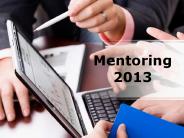Coaching Skills Powerpoint Content - PowerPoint PPT Presentation
Title:
Coaching Skills Powerpoint Content
Description:
ReadySetPresent (Coaching PowerPoint Presentation Content): 100+ PowerPoint presentation content s. Being capable of coaching is an important skill that can transform a manager’s scope of influence. – PowerPoint PPT presentation
Number of Views:21686
Title: Coaching Skills Powerpoint Content
1
CoachingSkills2013
2
We Need to Talk (1 of 11)
3
Program Objectives (1 of 2)
- Identify specific ways to build a coaching
atmosphere. - Understand the importance of the communication,
participation, and good work climate factors of
coaching to improve your impact and effectiveness
as a team leader. - Discover techniques for introducing critical
coaching aspects into your management style.
4
Program Objectives (2 of 2)
- Develop motivation and communication skills that
support your role as a coach. - Assess your present coaching style and its
strengths and weaknesses. - Utilize coaching steps to create a work climate
in which excellence becomes the norm with your
employees.
5
Definitions
- Coaching A directive process by a manager to
train and orient an employee to the realities of
the workplace and to help the employee remove
barriers to optimum work performance. - Counseling A supportive process facilitated by a
manager to help an employee define and work
through personal problems that affect job
performance.
6
Can Coaching Effectiveness Be Measured?
- The effectiveness of coaching can be measured
when it is compared to set pre-defined criteria.
- Effective coaching should lead to changed
behavior and improved work performance, while
providing support for the employee. - Criteria should be defined before coaching
begins, and results should be analyzed based on
that criteria.
7
Benefits of Coaching
- Coaching is the most effective way to develop
employees. - Coaching is the key to managing multiple
priorities. - Coaching leads to improved employee performance,
which leads to increased productivity and
bottom-line results. - Coaching increases employees self-esteem and job
satisfaction.
8
Three Defensive Behaviors
9
Coaching Candidates (1 of 2)
- Employees must be receptive to coaching, or the
coaching will be ineffective. The employees must
be - Open to feedback.
- Eager to improve.
- Aware of their need.
- Aware of the possible consequences of not
improving their performance. - Able to commit time to being coached.
10
We Need to Talk
11
Six-Step Coaching Model (1 of 2)
- Step 5
- Set Goals, and Develop an Action Plan.
- Plan
- Build strategies, and agree on follow-up,
including milestones and timelines. - Strategize
- Consider training, one-on-one coaching, and
resources.
12
Coaching Feedback Tips (1 of 3)
- Be descriptive about observable behaviors.
- Do not evaluate or use judgments.
- Do not put the employee on the defensive.
- Describe the behavior in the context of the
situation. - Only discuss changeable behaviors.
Adapted From Coaching for Peak Performance, by
U.S. Department of Health and Human Services
13
Employee and Manager Symptoms
14
Employee Symptoms (1 of 2)
- Is frequently tardy or absent
- Is defensive
- Complains
- Has a negative attitude
- Exhibits horn-blowing
- Maintains silence
- Avoids the manager
15
Disciplinary Action The Last Alternative
16
Steps in Disciplinary Action (3 of 3)
- Updates to HR and the managers manager
- Termination discussion
- For a termination resulting from poor performance
to occur, the manager must have a minimum of one
counseling session per week.
17
What is your next step?
18
- Download Coaching PowerPoint presentationat
ReadySetPresent.com145 slides include 6 points
on the untraditional approach, 10 uses for
coaching, 3 points on measurement of effective
coaching, slides on the characteristics and
skills of coaches, the benefits of coaching, 3
points on defensive behaviors, 7 points on what
coaching is, 11 points on coach characteristics,
10 slides on We Need to Talk, 4 slides on
closed questions made open, 13 coaching
guidelines, 7 points on the causes of poor
performance, 12 points on coaching candidates, 5
points on goal setting, Kirkpatrick's 4 level
model, 13 points on avoiding coaching pitfalls,
Six-step coaching model with in-depth
descriptions, An eight-step coaching model 6
slides on modeling coaching behavior, 14 tips on
feedback, 2 slides on 1-miute praising, 3 slides
on 1-minute reprimands, 3 slides on steps in
disciplinary action, 5 slides on role-playing, 8
points on observer guidelines, learning how to
utilize open and closed questions, 4 slides on
action steps, how to's and much more. - Royalty Free - Use Them Over and Over Again.
- Updated Expanded 2013
- Now more content, graphics, and diagrams































